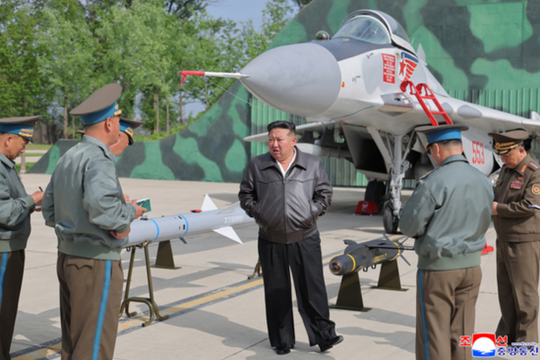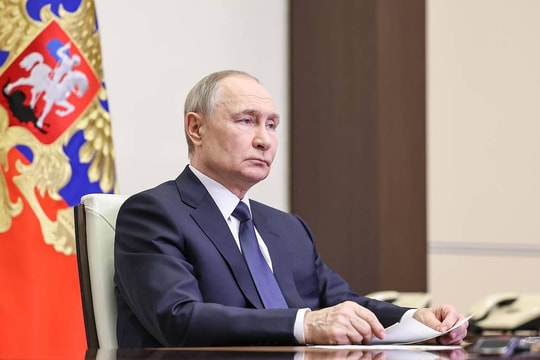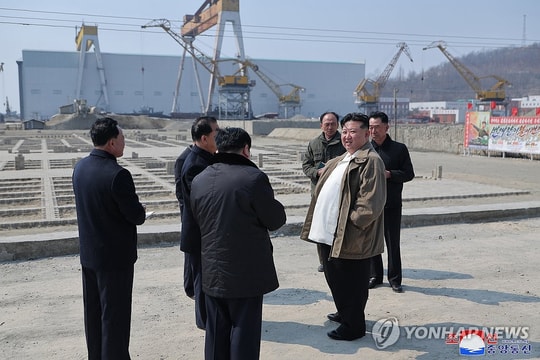Impact of Syria airstrike on North Korea
The US-led coalition's airstrikes on Syria give Washington an advantage in negotiations with Pyongyang but could also cause confusion in North Korea.
|
US President Donald Trump. Photo:CNN. |
On April 14, the US-led coalition launched 105 missiles against suspected chemical weapons production and storage sites in Syria. Analysts said the US-UK-France airstrike not only impacted Syria and the region, but also sent a message to another country: North Korea.
Leverage for Trump
According toCNBC, the airstrike last weekend could give US President Donald Trump a major advantage as he prepares for a summit with North Korean leader Kim Jong-un, scheduled for late May.
Dakota Wood, a defense expert at the Heritage Foundation think tank, said the 105 missiles fired at Syria would send a signal to Pyongyang that the White House wants dialogue but is also not afraid to take action.
Western powers have drawn a “red line” on the use of chemical weapons in Syria and have responded, so “if the US says it will not stand idly by while North Korea develops nuclear weapons, the Kim Jong-un regime will now have to think carefully about that statement and consider the potential military implications,” Mr. Wood said.
The response to the alleged chemical attack in Syria "gives the US more leverage when engaging in nuclear-related discussions with North Korea," said Andrea Taylor, a researcher at the Washington-based Atlantic Council.
It also contributes to "increasing America's prestige in the international community", so if President Trump now issues new warnings aimed at North Korea, Pyongyang will not be able to "ignore".
On April 16, the newspaperKorea Joongang DailySouth Korea's Foreign Ministry called the US-led coalition's airstrike on Syria "a wake-up call for Pyongyang," sending a message that if North Korea's leadership does not halt its nuclear and missile programs, it could face similar attacks.
US officials hope the show of force in Syria will increase pressure on Pyongyang, thereby opening up meaningful proposals to resolve the North Korean nuclear crisis, especially at the upcoming Trump-Kim summit.
“The Trump administration will not be satisfied” unless North Korea at least partially halts its nuclear and missile activities, said Bong Youngshik, a political expert at the Institute of North Korean Studies at Yonsei University in Seoul.
North Korea on alert
|
North Korean leader Kim Jong-un. Photo:KCNA. |
However, besides giving President Trump an advantage at the negotiating table, the airstrike on Syria also potentially raises concerns in Pyongyang that if it gives up its nuclear weapons, North Korea will lose its inherent deterrence and the next target to be hit by missiles will be none other than itself, observers say.
If North Korea feels unsafe, "it will definitely keep its nuclear program," said Kim Hyun-wook, a professor of American studies at the Korea Diplomatic Academy.
North Korean leader Kim Jong-un "may see an attack on Syria as a pretext to produce and stockpile nuclear weapons as a deterrent," said Catherine Dill, a defense analyst at the Middlebury Institute of International Studies in Monterey, California.
According to Ms. Jenny Town - Deputy Director of the US-Korea Institute at the Johns Hopkins School of Advanced International Studies, although tensions on the Korean peninsula have recently tended to ease after Mr. Kim Jong-un is said to have shown goodwill to negotiate, anxiety about a miscalculation that could lead to a conflict outbreak still exists.
|
Attack points of the US coalition in the airstrike on Syria on April 14. Graphics: Tien Thanh |
The US-led coalition's airstrikes in Syria have heightened those fears, leading to countries involved in the crisis such as China, South Korea and Japan becoming more willing to make concessions to North Korea to maintain the momentum of dialogue.
"Such actions will increase tensions in the region and from there the price for denuclearization of the Korean peninsula will increase," Ms. Town emphasized.
"Today is the airstrike on Syria, what's going to stop him from bombing Iran or North Korea next?" asked Democratic Senator Tim Kaine, a member of the US Senate Armed Services Committee. He criticized President Trump's decision to strike Syria as "illegal" and "reckless".

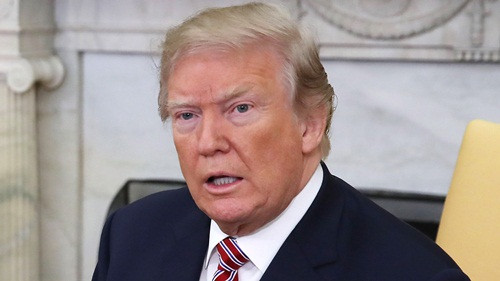
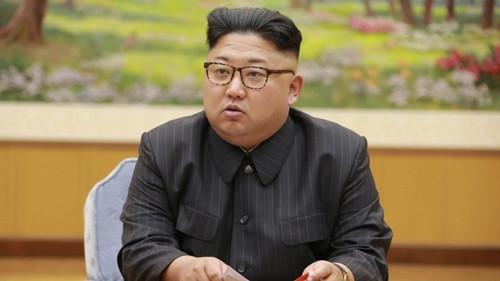
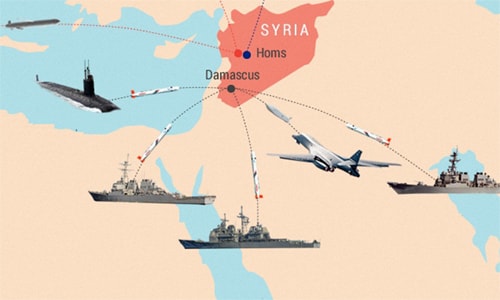

.jpg)
